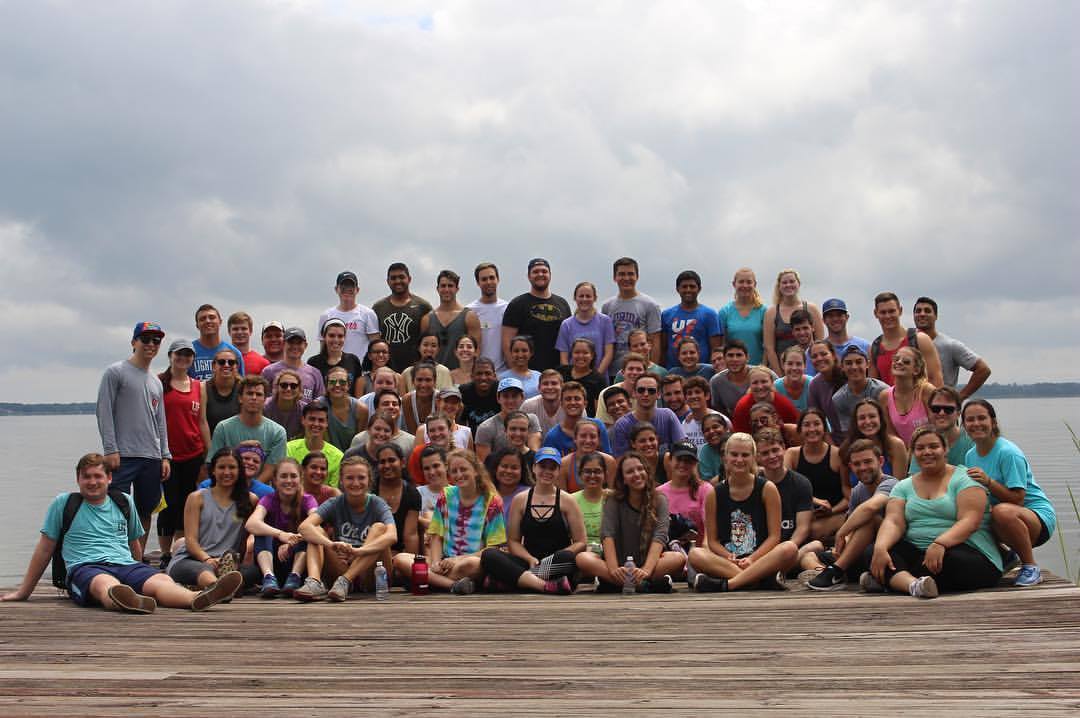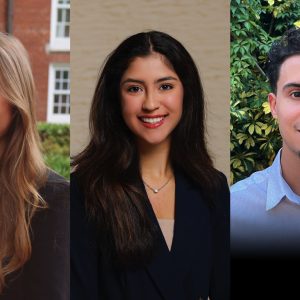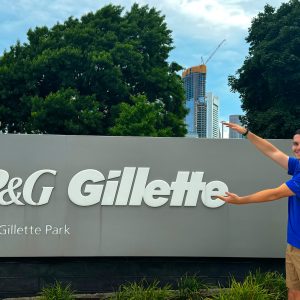Heavener Leadership Challenge prepares students to lead
The keystone of the Heavener School of Business’ mission is to instill dynamic leadership skills into students. The College does this through a variety of career and leadership development programs where students take the leadership reins.
The Heavener Leadership Challenge (HLC) uses principles from the best-selling leadership book “The Student Leadership Challenge” by Jim Kouzes and Barry Posner. The organization demonstrates to students that leadership is a learnable skill.
Each semester, about 50 accepted students complete a self-assessment where they evaluate their leadership skills. Students then identify, understand and capitalize on the five ‘practices’ of exemplary leadership listed in “The Student Leadership Challenge.”
“Each of the practices has taught me something new about myself each time I’ve gone through the activities,” said Mariya Markova, a senior finance and combination Master of International Business student and director of administration of HLC. “The most important thing I’ve learned through HLC is the relationship between self-awareness and good leadership. I’ve learned that being a leader means taking a step back and taking care of your team more than it means to be authoritative.”
The practices in “The Student Leadership Challenge” include, “Model the Way,” which refers to being a role model; “Inspire a Shared Vision,” asks students to envision the future and enlist others in a common vision; “Challenge the Process” encourages students to take risks and learn from mistakes; “Enable Others to Act” teaches students to foster collaboration; “Encourage the Heart” imparts students to recognize contributions and celebrate values and victories.
Students focus on one of the practices for one or two weeks, where they learn about the practice through large and small group work and TED Talk-style presentations by students who have completed the program, called facilitators.
“I applied to be a facilitator to be there for participants who struggle with confidence in their leadership style,” said Kristiana Caine, a senior marketing and combination Master of Science in Information Systems and Operations Management student. “My purpose as a leader is to serve and help others. I have seen my small group participants go through the program and become amazing leaders beyond the program.”
At the end of the program, students create an actionable project based on the practices. Each student finds a place where they can increase their leadership, whether it be at school, work, or other extracurricular program, and then implements the leadership teachings from HLC in that place. Students then share the results of their project at a final retreat.
Markova’s chosen practice for her capstone project was “Challenge the Process.”
“[“Challenge the Process”] was something I didn’t realize that I struggled with until HLC,” she said. “For me, challenging the process meant changing something that may have been done a certain for number of years, but needed obvious improvements. I challenged the process within my chapter by improving the timeline we utilized to welcome new members.”
Since the spring of 2014, about 600 students have completed the Heavener Leadership Challenge. Alumni of the program continue to support each other even after their semester in the Heavener Leadership Challenge is over.
“The most impactful aspect of the program is the people,” Caine said. “As a participant, the leadership team saw potential in me that I never saw in myself. My facilitators encouraged me to speak up, push myself out of my comfort zone and to be myself in every situation.”
Markova added, “HLC is unique because it challenges you to think deeply as to who you are as a person and as a leader. It’s an organization I recommend everyone get involved with, but if you can’t, then pick up the book and find out for yourself!”




